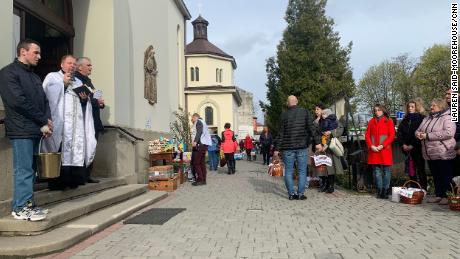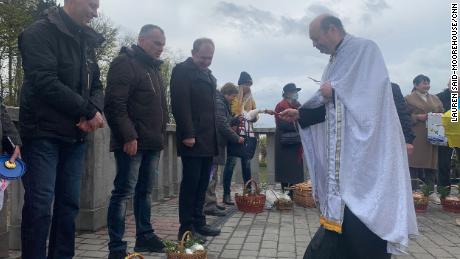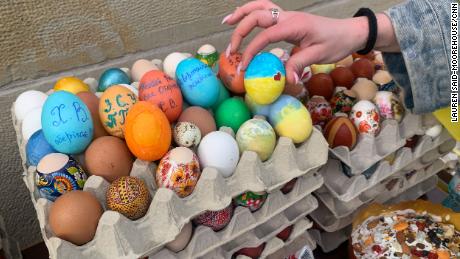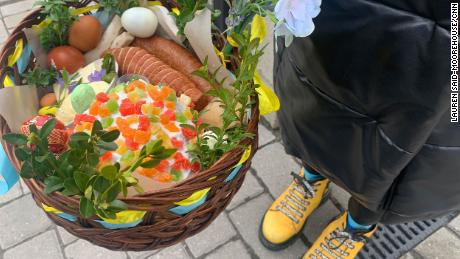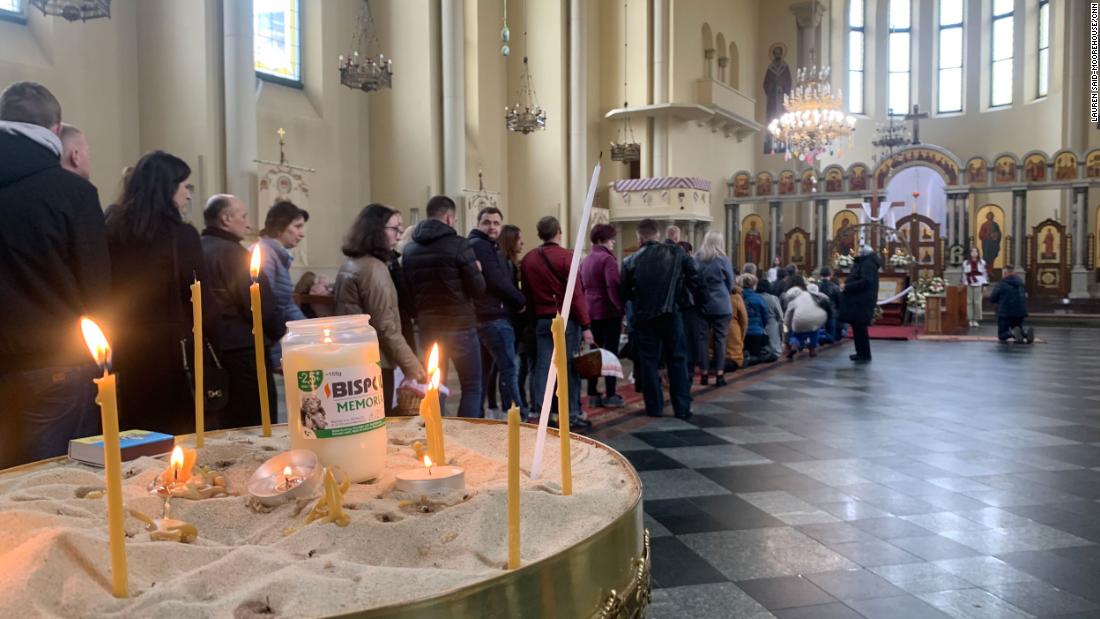
In his nightly address Saturday, Ukrainian President Volodymyr Zelensky ruminated on the significance of the date. “Today was Holy Saturday for Christians of the Eastern Rite. The day between the Crucifixion and the Resurrection. It seems that Russia is stuck on such a day,” he said.
“On the day when death triumphs and God is supposedly gone. But there will be a Resurrection. Life will defeat death. The truth will defeat any lies. And evil will be punished,” added Zelensky.
“For me, it was extremely important to come back home before Easter,” she says, before sharing her joy over the prospect of the couple’s grandparents meeting the new addition to the family. “I really wanted us to be together. It’s such a ray of hope that everything is going to be okay.”
Perched on the sofa in her apartment in central Lviv, Nykyforchyn glances over at her 27-year-old husband Nazar, whose attention is firmly fixed on the tiny, infant girl napping on his lap.
“I had a very tough experience of staying in Poland both physically, because of the baby, and mentally. It was more than difficult, unbearable,” she says.
“I moved to uncertainty: to strange people, to a strangers’ house, to a city I’ve never been to before, to a country with a language I don’t speak fluently. I understood that I would have to give birth in a clinic where no one knows me and where I haven’t made any agreements. I didn’t know how it would be. But the main thought which kept me afloat was that my child has to be born in the safe conditions,” says Nykyforchyn.
Aware of the toll on his wife, Nazar chimes in: “She is not just a woman, she is a hero … if I were in her shoes I wouldn’t be able to… I would’ve broken down. And she didn’t break down.”
While the gushing father is clearly delighted to be reunited with his wife and daughter, this young family are some of the more fortunate. Not all will get the same chance to reunite with loved ones.
Despite concerns, residents in Lviv descended on churches in the city for blessings of protection and prayer on Saturday. At the Church of the Intercession of the Blessed Virgin, the faithful ignored the calls to stay at home and instead queued with decorated baskets of food ready to be blessed with Holy Water by parish priests.
Volodymyr, 53, stands patiently alongside his family as they wait for the priest to make his way down the line.
“People often think that holidays should be merry, bring relief, and make it easier — and when they feel good they don’t turn to real faith … Now we are going through hard times, people are starting to come closer to God, there are more people here than before, and that’s good for us,” he says, before showing us the homemade paska (a traditional Easter bread), sausage, ham and cheese nestled among candles and decorative eggs in his basket.
“Today in the morning there was an air alarm, but now thank God it’s calmer and we could come. It’s very important for us. It’s the church we visit often,” he adds.
Nearby, 35-year-old church volunteer Andrii is dutifully loading collection boxes of Easter food for Ukrainian troops. “We are trying to keep a festive mood and hope for justice and peace. This holiday, Easter gives even more hope. We have to believe in victory as well as we believe in Jesus Christ,” he says.
Gesturing to the rapidly filling containers, he adds: “They will be sent to the military units who protect our land. (The) guys should have an opportunity to eat some paska and sausage.”
A gust of wind catches the beautifully embroidered cloth covering 35-year-old Maryanna’s basket. After fixing it back in place, she tells CNN her family heeded the warnings to remain at home.
“It’s scary and there’s anxiety in my soul. In Odesa today there was a missile strike … But we believe in God and hope that it all ends up with the victory,” she says softly.
As the priest rounds the corner, her eyes quickly flicker back to her basket. “We got a notification from our city officials that people should better stay at home, but we can’t,” she continues. “How can we not bless the Easter bread? We missed it during a Covid pandemic — and now people need the holiday desperately.”
CNN’s Nathan Hodge and Yulia Kesaieva in Lviv also contributed to this report.
